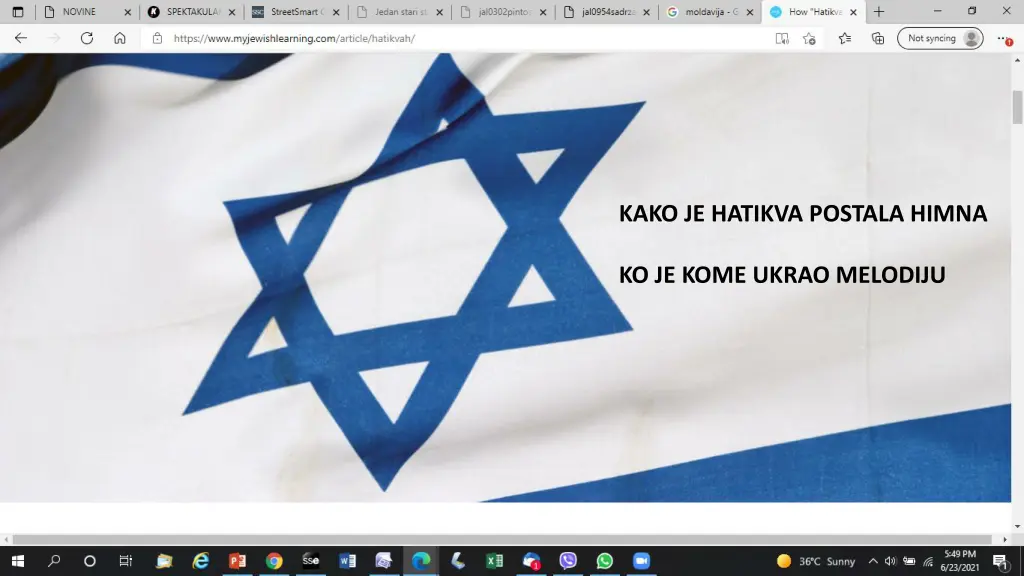
Hatikva: The Journey of Israel's National Anthem
Explore the captivating journey of "Hatikva," from its origins as a Zionist anthem in 1897 to becoming the official national anthem of Israel in 2004. Learn about the melody's composer, Naftali Hertz Imber, and how the song symbolizes hope and freedom for the Jewish people. Discover the significance of the lyrics and the melody's similarity to Bedřich Smetana's "Vltava." Dive into the history and meaning behind this iconic anthem.
Download Presentation

Please find below an Image/Link to download the presentation.
The content on the website is provided AS IS for your information and personal use only. It may not be sold, licensed, or shared on other websites without obtaining consent from the author. If you encounter any issues during the download, it is possible that the publisher has removed the file from their server.
You are allowed to download the files provided on this website for personal or commercial use, subject to the condition that they are used lawfully. All files are the property of their respective owners.
The content on the website is provided AS IS for your information and personal use only. It may not be sold, licensed, or shared on other websites without obtaining consent from the author.
E N D
Presentation Transcript
KAKO JE HATIKVA POSTALA HIMNA KO JE KOME UKRAO MELODIJU
HATIKVA nada Tek je 2004 postala zvanicna himna Izraela Cionisticka himna 1897 na prvom kongresu u Bazelu
Cionisticka himna od 18. kongresa 1933 Tada je prihvacena I danasnja zastava plavo bela sa Magen Davidom Napisao Naftali Hertz Imber (1856-1909), 1878 kao pesmu Tikvatenu Samuel Cohen napisao muziku
Pevana na proglasenju Izraela 1948 Ali nije do 2004 postala zvanicna himna Melodija lici na Vltavu od B Smetane iz poeme moja zemlja
Tekst Kol od baleivav penimah Nefesh yehudi homiyah, Ulfa atey mizrah kadimah, Ayin letsiyon tsofiyah; Od lo avdah tikvateinu, Hatikvah bat shenot al payim, Lihyot am hofshi be artzeinu, Eretz tziyon veyerushalayim. As long as Jewish spirit Yearns deep in the heart, With eyes turned East, Looking towards Zion. Our hope is not yet lost, The hope of two millennia, To be a free people in our land, The land of Zion and Jerusalem.
